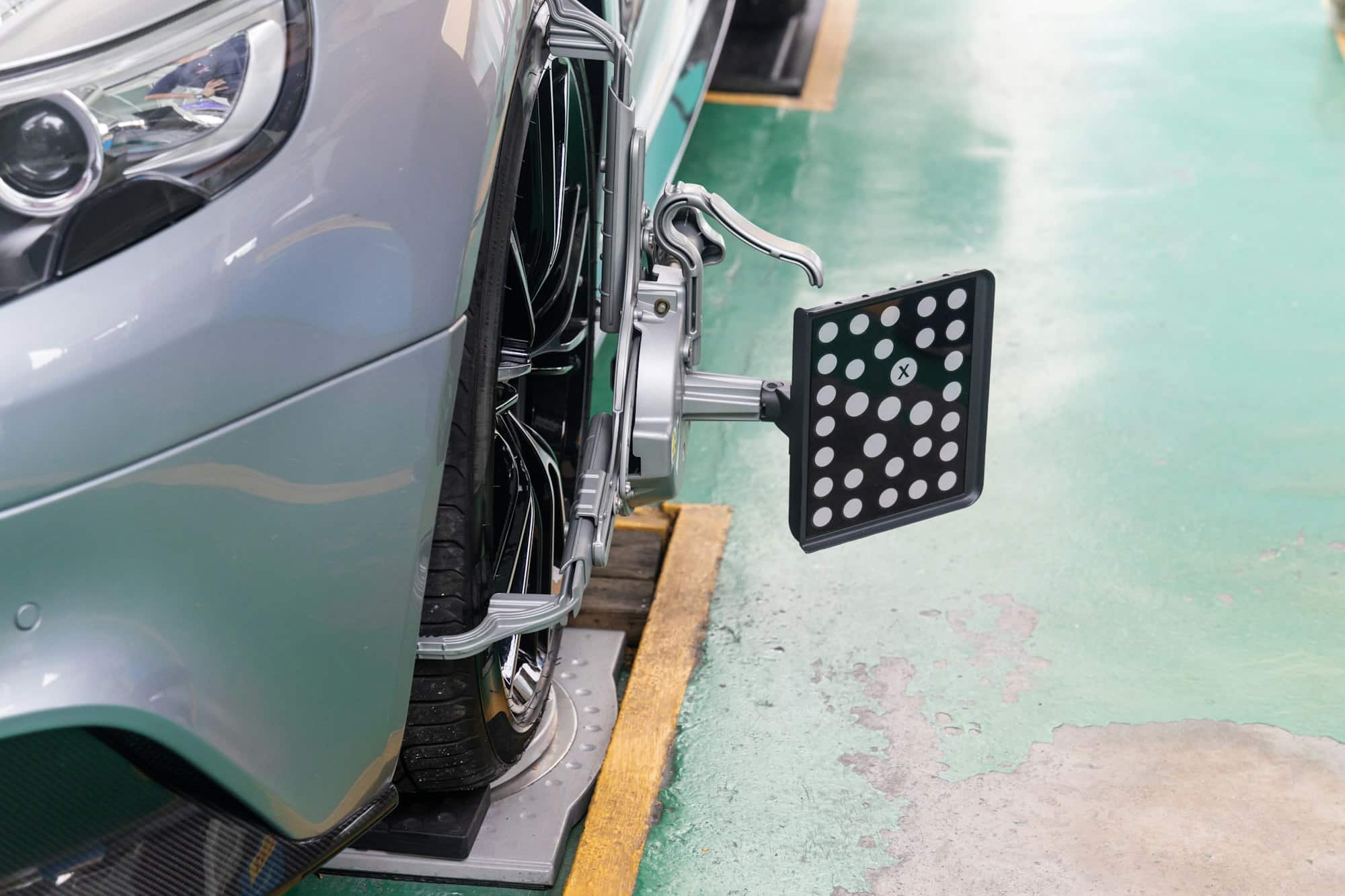Can You Extend Your Car’s Tire Life with Precision Wheel Alignment and Balancing?

As car owners, we know tires are not inexpensive. And with the rising costs of maintenance and fuel, it’s crucial to understand how to extend the lifespan of our car tires. One often overlooked aspect of maintaining our car tires’ longevity involves precision wheel alignment and balancing. But can these procedures truly help extend your tires’ lifespan? Let’s dive deeper and explore this.
Understanding Wheel Alignment
If you’ve ever driven a car that pulls to one side or the other, or if your steering wheel is off-center even when driving straight, you’ve experienced the effects of poor alignment. But what exactly is wheel alignment?
Avez-vous vu cela : How Does Aerodynamic Design Affect a Car’s Fuel Efficiency?
Wheel alignment refers to the adjustment of a vehicle’s suspension, the system that connects a vehicle to its wheels. It’s not an adjustment to the tires or wheels themselves, but rather to the angles of the tires which affect how they contact the road.
Misalignment can cause a variety of problems. Tires can wear unevenly and prematurely, the car may not handle correctly, and the fuel economy can diminish. Regular alignment checks and adjustments can prevent these issues, helping to extend the life of your tires, increase your vehicle’s fuel efficiency, and provide a smoother ride.
A découvrir également : How Can Installing a Roof Box Impact Your Vehicle’s Fuel Efficiency and Aerodynamics?
The Importance of Wheel Balancing
While wheel alignment is crucial, so is wheel balancing. Wheel balancing ensures that the weight of the wheel and tire is evenly distributed around the axle. When a wheel is out of balance, it can lead to irregular tire wear and can affect the suspension, steering components, and even the ride comfort.
Common symptoms of unbalanced tires include uneven and faster tread wear, poor fuel economy, and vibration in the steering wheel, the floorboard, or the seat that gets worse at faster speeds.
Balancing your wheels can prevent wear and tear on your tires, and it can extend the life of your tires. It can also provide a smoother ride and better fuel efficiency. Regular tire balancing should be part of your tire maintenance routine.
How Precision Alignment and Balancing Extend Tire Life
Now that we understand what wheel alignment and balancing are and why they’re important, we can delve into how they extend tire life.
Misaligned or unbalanced wheels create uneven pressure on the tires. They touch the road at the wrong angle and more of the tire touches the road. This leads to uneven wear and tear. With alignment and balancing, the tires perform as they’re supposed to, resulting in a longer lifespan.
For instance, when your car’s alignment is off, the tires may wear more on one side than the other. This can cause them to need replacing sooner than if the wear was even. By regularly checking and maintaining your car’s alignment, you can ensure that your tires wear evenly, extending their life.
Similarly, unbalanced wheels can cause the tires to vibrate, which can lead to premature tire wear and can damage suspension components. Balancing your wheels minimizes vibrations and reduces tire wear, leading to longer-lasting tires.
When to Check and Adjust Wheel Alignment and Balancing
While it’s clear that regular wheel alignment and balancing are beneficial, it may not be clear how often these should be carried out.
For wheel alignment, many mechanics recommend getting your alignment checked every 2-3 years. However, it’s also important to get your alignment checked if you notice signs of misalignment, such as your car pulling to one side, uneven tire wear, or an off-center steering wheel.
For wheel balancing, it’s recommended to have your tires balanced every time you get them rotated, which is typically every 5,000 to 6,000 miles. Similarly, if you notice vibrations in your car or uneven tire wear, it’s a good idea to have your tires balanced.
In conclusion, precision wheel alignment and balancing are important aspects of vehicle maintenance that can greatly extend the life of your tires. Implementing a regular routine for these services can save you money in the long run, provide a smoother and safer ride, and improve the overall performance of your vehicle. It’s a small investment that can have a significant impact.
The Consequences of Neglecting Wheel Alignment and Balancing
Delaying or ignoring the need for wheel alignment and balancing can have serious consequences on your vehicle’s performance and your safety. Misalignment can lead to uneven tire wear, poor handling, and reduced fuel economy. Similarly, unbalanced wheels can cause vibration, rapid tire wear, and damage to suspension components.
Moreover, it’s worth noting that misaligned or unbalanced wheels can be detrimental to the driver’s comfort and the overall driving experience. It can cause the vehicle to drift to one side or create uncomfortable vibrations, particularly at high speeds. It can also put undue stress on the vehicle’s suspension and other components, potentially leading to expensive repairs down the line.
But perhaps most importantly, misalignment and imbalance can pose serious safety risks. A car that pulls to one side or shakes at high speeds is difficult to control, increasing the chances of accidents. In severe cases, uneven tire wear could lead to a blowout, a dangerous situation at any speed. Therefore, regular wheel alignment and balancing checks are not just a matter of prolonging tire life, but they are also crucial for your safety on the road.
Conclusion: The Value of Wheel Alignment and Balancing
In conclusion, the importance of precision wheel alignment and balancing cannot be overstated. They are essential procedures that can significantly extend your tires’ lifespan, enhance your vehicle’s performance, increase fuel efficiency, and most importantly, ensure your safety while driving.
Regular checks and necessary adjustments should be part of your routine vehicle maintenance. While it might seem like an additional expense, the benefits you reap in the long run make it a worthy investment. Not only will you save money by not needing to replace your tires as often, but you will also enjoy a smoother and safer driving experience.
In today’s world where fuel prices are constantly on the rise, maintaining optimum fuel efficiency is a major bonus. Furthermore, preventing potential damage to the vehicle’s suspension system can save you from costly repairs.
So, the answer to the question posed at the beginning is a resounding yes. Precision wheel alignment and balancing can undoubtedly help extend your car’s tire life, offering an array of benefits that go beyond mere cost savings. So, the next time you’re scheduling routine maintenance for your vehicle, make sure to include wheel alignment and balancing checks as well.
